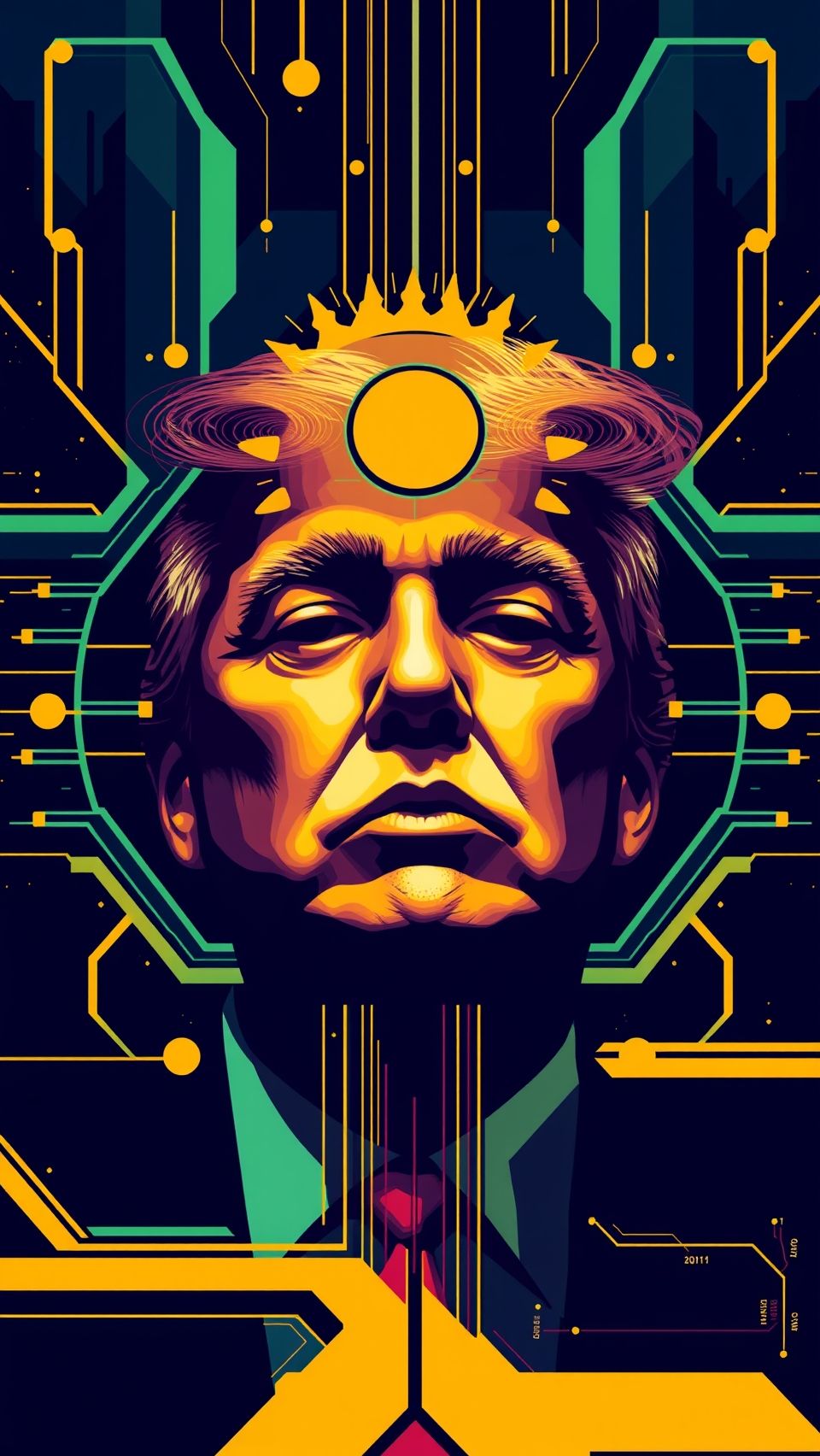Ai-Driven Shield: Picogrid Teams Up With Northrop Grumman To Unveil Revolutionary Air Defense System
Collaboration to Modernize U.S. Air Defense: Picogrid Partners with Northrop Grumman
The U.S. …
12. August 2025

US President Donald J. Trump has expressed admiration for Intel CEO Lip-Bu Tan’s “success and rise” in a recent meeting, a sentiment that has reversed since last week when Trump called for Tan’s resignation over potential conflicts of interest. The reversal comes after Trump posted on Truth Social, stating that Tan and his Cabinet members will “bring (him) suggestions” following their discussions.
The topics of these discussions are likely to focus on ways in which Trump and Intel can collaborate to bolster domestic chipmaking. This could involve a cash injection from the government, which would help Intel boost its capacity and compete with its key Taiwanese rival, Taiwan Semiconductor Manufacturing Company (TSMC). A government investment would enable Intel to increase production and improve its competitiveness.
Intel confirmed that Trump and Tan had met “for a candid and constructive discussion on Intel’s commitment to strengthening US technology and manufacturing leadership.” The company expressed its enthusiasm for working closely with the president and his administration, highlighting the potential benefits of this collaboration.
Trump’s change of heart on Tan comes after last Thursday’s post, where he called for Tan’s resignation due to alleged conflicts of interest. Arkansas Senator Tom Cotton had previously written a letter detailing these concerns, alleging that Tan “has deep ties to the Chinese Communists.” The senator claimed that Tan was “highly conflicted” and argued that he should resign immediately.
Tan, a US citizen born in Malaysia, became Intel’s CEO in March 2022. Prior to this role, he served as a venture capitalist and the CEO of Cadence Design Systems, a Silicon Valley-based software company. In July, Cadence pleaded guilty to an export violation, with Tan being listed among those responsible for the illegal activities.
The plea agreement included a $140.6 million settlement after a Cadence subsidiary sold products to China’s National University of Defense Technology, violating US export restrictions. The senator claimed that these “illegal activities occurred under Mr. Tan’s tenure.”
Furthermore, Cotton alleged that Tan “controls dozens of Chinese companies and has a stake in hundreds of Chinese advanced-manufacturing and chip firms.” Tan’s venture capital work had included investments in several Chinese tech companies.
At stake is Intel’s nearly $8 billion in federal funding under the CHIPS and Science Act. The senator framed Tan’s résumé as a national security issue, requesting that Intel’s board disclose any measures taken to address potential conflicts or require Tan to divest from foreign companies.
Tan responded with an open letter to Intel staff, stating that he had “always operated within the highest legal and ethical standards” and was “engaging with the (US) Administration to address the matters that have been raised and ensure they have the facts.”
Intel also shared a statement confirming that the Board of Directors and Tan were “committed to advancing U.S. national and economic security interests and are making significant investments aligned with the President’s America First agenda.”
Despite these assurances, some analysts remain skeptical about Intel’s ability to address its challenges. The company has struggled in recent years, with a decline in stock price by 60% in 2024, and falling from first to second place on Gartner’s list of top global semiconductor vendors by revenue growth.
Intel’s former CEO, Pat Gelsinger, who led the company for 30 years, departed after his turnaround plan failed to deliver. He was replaced by Tan, who has a background in both chip design and manufacturing, and was expected to revamp Intel’s production strategy.
Since taking over, Tan has made several significant moves, including pausing the construction of two advanced semiconductor plants in Ohio, cutting 15% of the workforce, and revamping internal processes. However, it appears that plans to use 18A to produce its new “Panther Lake” laptop chips have not been successful.
The company is also considering reducing its emphasis on its main chipmaking process in an effort to better compete with rival TSMC and attract major clients, such as Apple and NVIDIA. This strategy is consistent with the president’s push for domestic chip production through high import tariffs and tax breaks.
Trump has recently started granting US firm NVIDIA licenses to sell its advanced AI chips to China, despite national security concerns. This move highlights the growing tensions between the US and China in the tech sector.
Intel’s efforts to strengthen its domestic presence are likely to be shaped by Tan’s goals, which align with the president’s vision for reducing reliance on foreign competitors like TSMC and Samsung. The company is working to improve its internal chip fabrication capabilities, seen as essential for competing in an increasingly globalized industry.
As Intel navigates these challenges, it remains to be seen how effectively Tan can address the concerns raised by Senator Cotton and other critics. With Trump’s support and a renewed focus on domestic production, the company may have a better chance of success.